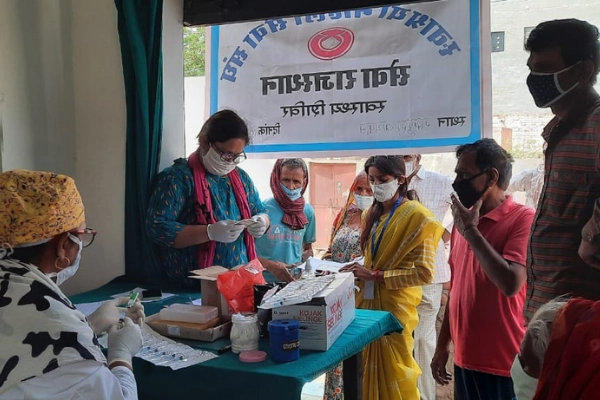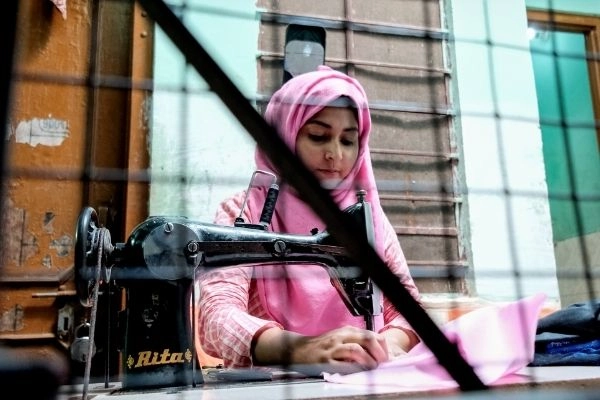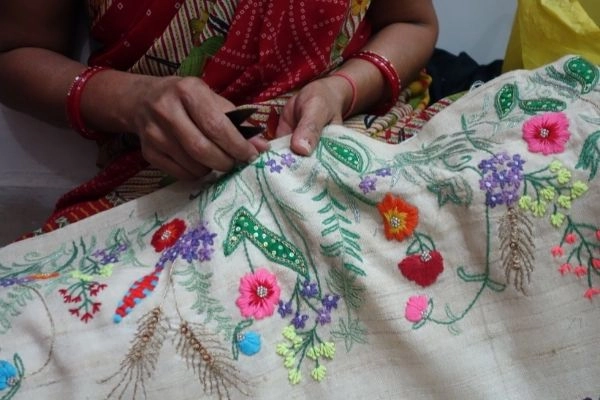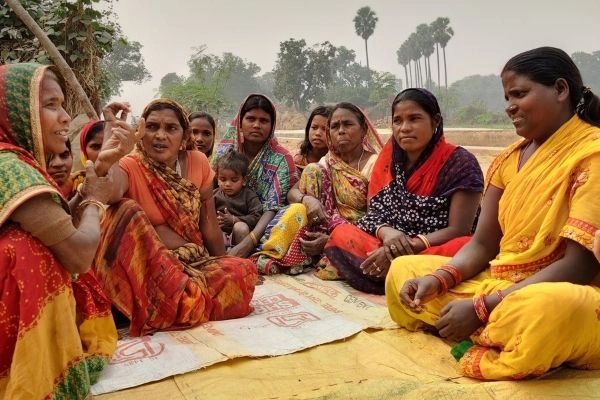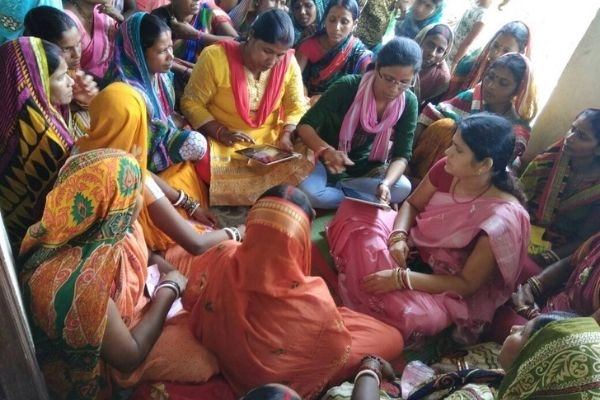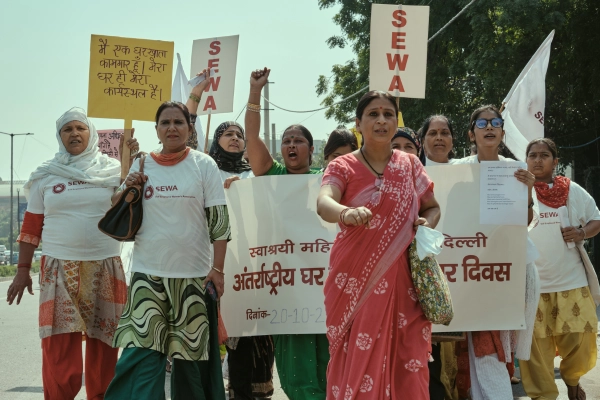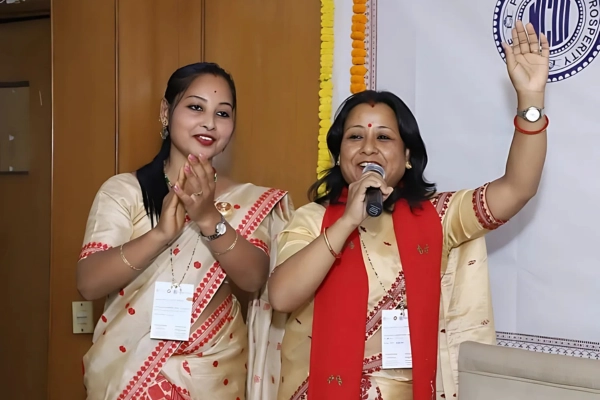Search Research Publications on Sewa Bharat
I don’t share personal details with just anybody,” said Gunja Kumari Ben, a resident of Bhagalpur, Bihar, as she was approached for a conversation. But when we came to know that she was being approached by SEWA Bharat, Gunja Ben visibly let go of some of her inhibitions. She told that she was familiar with the organization’s work, and began sharing about her trade and recent struggles as a microentrepreneur. She is a tailor who used to earn well until two years ago, but since the onset of COVID-19, she has lost her source of income. Even her husband lost his means of livelihood that came through a cloth business. Gunja Ben and her family had some savings during the 2020 lockdown with which they were able to run their household. But during the second lockdown, it became imperative for them to get a loan from a moneylender at a massive interest rate of 10%, which they are under pressure to return soon. Gunja Ben keeps herself updated about the fast-spreading disease, the possibility of lockdowns, and the vaccine through the TV news, Whatsapp groups, neighbors, and newspapers. She proudly tells us how she uses a mask and sanitizer even within her house and washes her hands multiple times a day. Despite her economic condition she remains hopeful that: when the lockdown opens, she will get to work again.
I don’t share personal details with just anybody,” said Gunja Kumari Ben, a resident of Bhagalpur, Bihar, as she was approached for a conversation. But when we came to know that she was being approached by SEWA Bharat, Gunja Ben visibly let go of some of her inhibitions. She told that she was familiar with the organization’s work, and began sharing about her trade and recent struggles as a microentrepreneur. She is a tailor who used to earn well until two years ago, but since the onset of COVID-19, she has lost her source of income. Even her husband lost his means of livelihood that came through a cloth business. Gunja Ben and her family had some savings during the 2020 lockdown with which they were able to run their household. But during the second lockdown, it became imperative for them to get a loan from a moneylender at a massive interest rate of 10%, which they are under pressure to return soon. Gunja Ben keeps herself updated about the fast-spreading disease, the possibility of lockdowns, and the vaccine through the TV news, Whatsapp groups, neighbors, and newspapers. She proudly tells us how she uses a mask and sanitizer even within her house and washes her hands multiple times a day. Despite her economic condition she remains hopeful that: when the lockdown opens, she will get to work again.


Sample Text


Latest Publications
Case Study – Lac Work in Jaipur
Case Study - Lac Work in Jaipur > Research > Organizing & Leadership This case study explores lac work in Jaipur, Rajasthan, focusing on the working [...]
Case Study – Women Street Vendors in Bihar
Case Study - Women Street Vendors in Bihar > Research > Organizing & Leadership This case study explores the lives of women street vendors in Bihar, [...]
Case Study – Agricultural Workers in Munger, Bihar
Case Study - Women Agricultural Workers In Munger, Bihar > Research > Organizing & Leadership Agricultural labour is a primary occupation, especially for landless women and [...]
Collectivising For Work, Rights, Amenities: Scaling SEWA’s Approach
Collectivising For Work, Rights, Amenities: Scaling SEWA’s Approach > Research > Organizing & Leadership This report discusses the SEWA model of membership-based service delivery, unpacks its [...]
Empowering Women To Improve Awareness & Access To Tenure, Infrastructure & Finance In Informal Settlements
Empowering Women To Improve Awareness & Access To Tenure, Infrastructure & Finance In Informal Settlements > Research > Urban Land Rights SEWA Bharat’s Zamini Adhikar Abhiyaan [...]
Delhi Declaration 2022
SEWA Bharat partnered with SEWA Cooperative Federation, National Cooperative Union of India and International Cooperative Alliance - Asia and Pacific, in enabling women cooperators to co-create the Delhi Declaration 2022, which is an action-oriented roadmap rooted in the lived realities of informal economy women workers and their collective enterprises.

